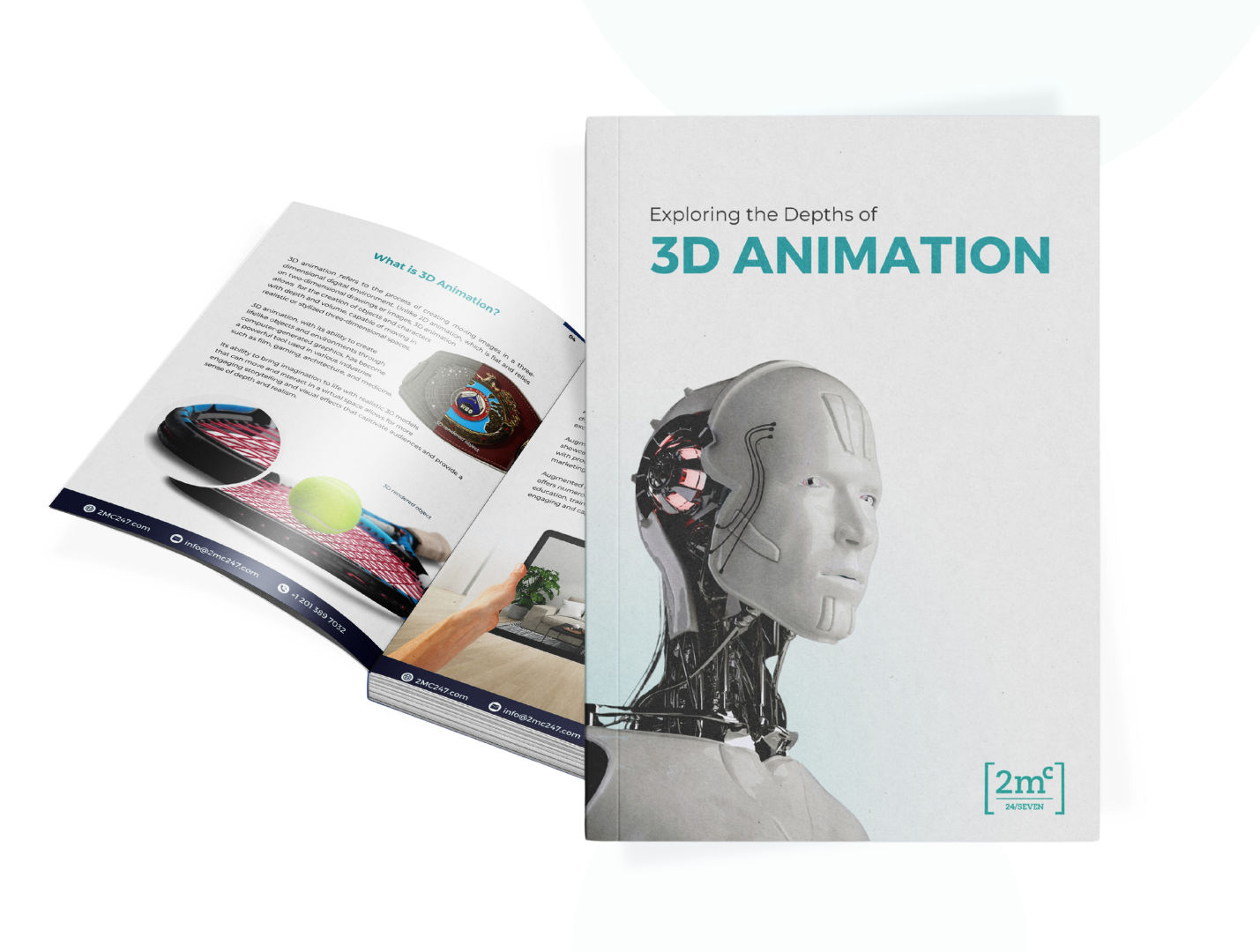Artificial intelligence in business is no longer a buzzword, it’s a powerful force transforming how organizations operate and grow. From streamlining operations to uncovering new opportunities, AI is reshaping strategy and execution across industries.
At 2MC 24/7, we see and utilize AI not just as a tool, but as a cornerstone of modern success, especially in the AI Services that we offer. It drives efficiency by automating repetitive tasks, enhances customer experiences through personalization and predictive insights, and empowers leaders with data-driven decision-making.
Embracing AI is no longer optional, it’s a competitive necessity for businesses that want to innovate, adapt, and thrive in the future.
Why Artificial Intelligence in Business a Game-changer
One of the biggest advantages of AI is its ability to process massive amounts of data in real time. In today’s data-driven world, businesses that can analyze patterns, predict outcomes, and act swiftly gain a competitive edge.
- AI-powered analytics platforms like Google Cloud AI or IBM Watson help businesses uncover insights hidden in complex datasets.
This capability allows leaders to make smarter, easier and faster decisions, improving efficiency and reducing risk.
AI Applications Across Industries
Artificial Intelligence is not confined to one industry. Companies across healthcare, retail, finance, construction, and beyond are leveraging AI to unlock new opportunities.
Retail: Personalized Shopping Experiences
In retail, AI is the driving force behind personalized shopping. Recommendation engines study consumer browsing and purchase patterns to suggest products tailored to each shopper.
- Amazon’s recommendation system generates nearly 35% of its revenue by showing customers “frequently bought together” or “recommended for you” items.
- Fashion retailer Stitch Fix uses AI to analyze customer preferences and ship personalized clothing selections.
AI also powers visual search tools, such as Pinterest Lens, allowing shoppers to upload a photo and find similar products instantly. This creates a seamless and engaging buying journey that boosts conversions and customer loyalty.
Manufacturing: Predictive Maintenance
AI-driven predictive maintenance is transforming manufacturing by reducing costly equipment failures. Instead of reacting after a machine breaks down, AI analyzes data from sensors to predict when maintenance is needed.
- General Electric (GE) uses its AI-powered Predix platform to monitor industrial equipment in real time, identifying potential breakdowns before they occur.
AI also improves quality control. By analyzing images and sensor data, AI can detect defects in products during assembly, ensuring higher accuracy and fewer recalls.
Finance: Fraud Detection and Risk Management
In the financial sector, fraud detection has become one of the most important AI applications. AI systems monitor transactions in real time, detecting unusual patterns that might indicate fraudulent activity.
- Mastercard and PayPal use AI algorithms to analyze billions of transactions daily, preventing fraud and safeguarding customer accounts.
AI systems also enhance risk management by evaluating credit scores more accurately, factoring in non-traditional data such as spending habits and digital footprints. Banks are also using AI-powered chatbots for customer onboarding and loan processing, speeding up traditionally slow processes while maintaining compliance and security.
Construction: Enhanced Project Management
AI in construction is reshaping how projects are managed from start to finish. AI-powered tools can analyze blueprints, monitor progress, and compare real-time performance against project schedules and budgets.
- Autodesk’s Construction IQ uses AI to detect risks on job sites by analyzing safety data. It can alert project managers to potential hazards before they lead to accidents.
- Drones equipped with AI can survey job sites, ensuring accuracy in progress reporting and identifying bottlenecks.
AI also helps reduce waste and optimize resources by forecasting material needs and automating inventory management, keeping projects within budget and on schedule.
Healthcare: Smarter Diagnosis and Treatment
AI in healthcare is revolutionizing how doctors and hospitals diagnose, treat, and monitor patients. Using machine learning and predictive analytics, AI can detect diseases earlier and with higher accuracy than traditional methods.
- AI-powered imaging systems like Google’s DeepMind Health have successfully analyzed eye scans to detect conditions such as diabetic retinopathy and age-related macular degeneration.
- Platforms like PathAI assist pathologists in detecting cancerous cells with greater precision.
Beyond diagnosis, AI is improving treatment personalization. By analyzing patient histories, genetics, and lifestyle data, AI systems can recommend tailored treatment plans, ensuring better patient outcomes and reduced hospital readmissions.
AI-Powered Marketing
Modern marketing thrives on personalization and precision, both of which AI enables. AI-driven platforms can analyze customer behavior, predict future needs, and recommend the best communication channels.
- Coca-Cola uses AI to analyze social media conversations and create personalized ad content.
- Spotify’s recommendation engine tailors playlists based on listening habits, boosting engagement.
AI tools also improve ad targeting. Platforms like Facebook Ads and Google Ads use AI to automatically optimize campaigns, ensuring businesses get the best ROI by reaching the right audience at the right time.
Ethical Considerations of AI

While AI offers incredible advantages, it also raises critical ethical questions. Businesses must address concerns around:
- Data Privacy – Protecting sensitive user information.
- Algorithmic Bias – Avoiding unfair outcomes in decisions like hiring or lending.
- Transparency – Ensuring users understand how AI-driven systems make decisions.
For example, facial recognition technologies have been criticized for bias, leading to inaccurate results for certain demographic groups. Companies adopting AI should establish AI ethics frameworks and follow guidelines like those set by the OECD Principles on AI to ensure fairness and accountability.
AI as a Partner, Not a Replacement
Contrary to the fear of AI replacing human jobs, businesses are beginning to see AI as a collaborator rather than a competitor.
AI handles repetitive, data-heavy tasks, while humans focus on strategy, creativity, and emotional intelligence.
At 2MC 24/7, we believe the most successful businesses will be those that foster human-AI collaboration, using AI to enhance human potential rather than replace it.
The Future of AI in Business
The future of AI promises even deeper integration across industries. Advancements in natural language processing, computer vision, and robotics will open doors to innovations we are only beginning to imagine.
- In healthcare, AI could develop personalized medicine based on DNA analysis.
- In transportation, autonomous vehicles may revolutionize logistics and supply chains.
- In sustainability, AI could help businesses reduce their carbon footprint by optimizing energy use.
Companies that invest in AI today are not just preparing for tomorrow, they are building a competitive advantage that will define their industry leadership.
Final Thoughts
Artificial Intelligence is no longer optional, it’s essential for businesses that want to thrive in the digital age. At 2MC 24/7, we help organizations embrace AI responsibly and strategically. By rethinking processes, investing in ethical innovation, and adopting AI-driven tools, businesses can unlock new growth opportunities and prepare for the challenges of tomorrow.
AI is not just a passing trend, it’s a business imperative. Companies that adopt it wisely will define the future.
Ready to transform your business with the power of Artificial Intelligence? Contact 2MC 24/7 today to explore custom AI-driven strategies that boost efficiency, innovation, and growth.





